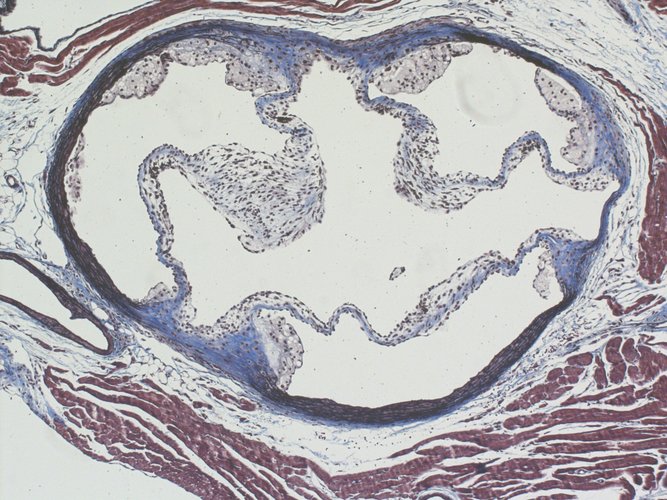Natural Antibodies Prevent Atherosclerosis and Inflammation of the Liver
Share
Excessive LDL cholesterol in the blood is dangerous as it penetrates vascular walls, causes chronic inflammation and leads to atherosclerosis and liver inflammation. A group of antibodies, present in the body from birth, counteracts these inflammations and the resulting illnesses.
A certain group of white blood cells – B-1 cells – work against the life-threatening damage to vessels that can lead to heart attack and stroke: These cells produce naturally occurring antibodies that bind oxidised LDL and neutralise it, disrupting the inflammation. A discovery made by scientists from the lab of Christoph Binder, group leader at the CeMM and Professor for Atherosclerosis Research at the Medical University of Vienna in cooperation with Lars Nitschke from the University of Erlangen and Ronit Shiri-Sverdlov from Maastricht University.
The immune cells also carry a molecular regulator that reduces their activity – the researchers were able to show that the deactivation of this regulator, the so-called 'Siglec-G' protein, caused an increased propagation of B1-cells and antibodies, which protect vessels and the liver from inflammation. This was proven with special laboratory mice that lacked the gene for Siglec-G. In those animals, the development of atherosclerosis, which is frequently accompanied by inflammation of the liver, was massively reduced despite an extremely fat-rich diet and consistently high cholesterol values.
The study clearly shows that increased levels of these naturally occurring antibodies prevent atherosclerosis and inflammation. These mechanisms could be used in a therapy by, e.g., blocking Siglec-G with a specific medication. A completely new and promising approach that strengthens the body's own defensive mechanisms and thus counteracts the deadly consequences of a fatty diet that leads to cardiovascular diseases. The results were published in the journal "Cell Reports".
Publication:
Sabrina Gruber, Tim Hendrikx, Dimitrios Tsiantoulas, Maria Ozsvar-Kozma, Laura Göderle, Ziad Mallat, Joseph L. Witztum, Ronit Shiri-Sverdlov, Lars Nitschke, and Christoph J. Binder. Sialic Acid-Binding Immunoglobulin-like Lectin G Promotes Atherosclerosis and Liver Inflammation by Suppressing the Protective Functions of B-1 Cells, Cell Reports
Funding:
This study was partly funded by the Austrian Science Fund (FWF F43-B09, FWF W1207-B09).

